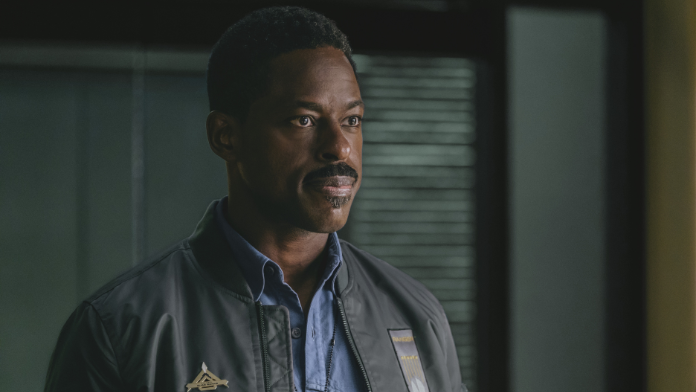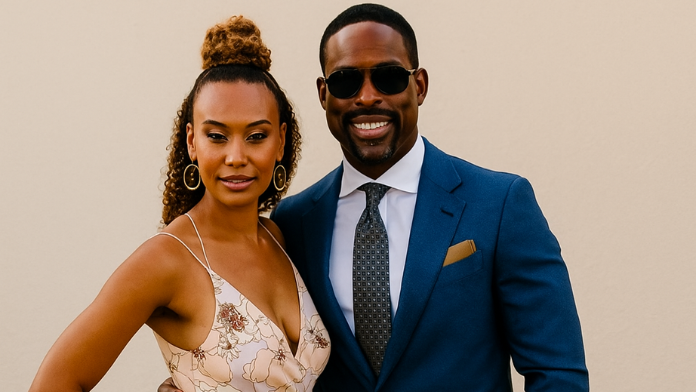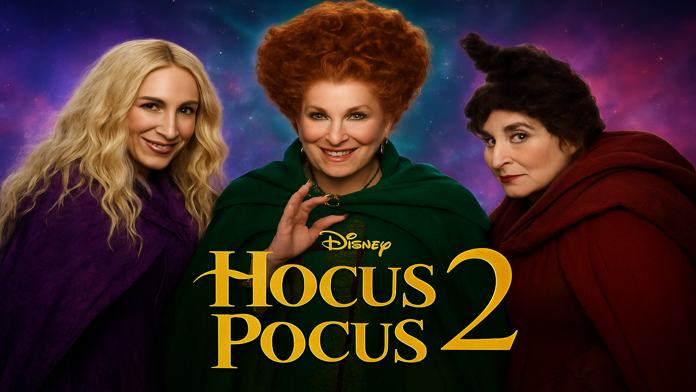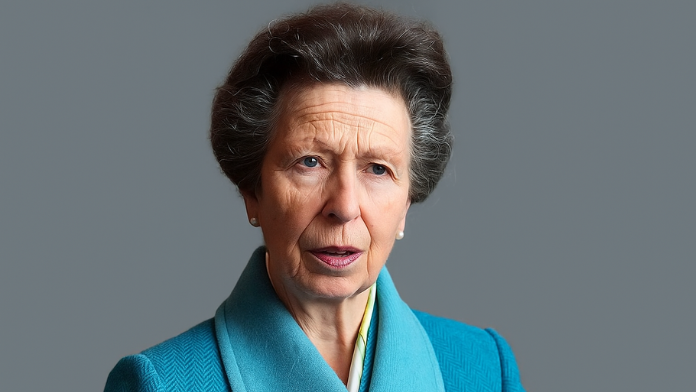
In today’s acting landscape—overflowing with spectacle, social media fame, and fast stardom—few artists combine depth, discipline, and genuine emotion quite like Sterling K. Brown. His career stands as a quiet masterclass in how to build longevity, lead with authenticity, and move audiences without relying on flash or hype.
If you’ve ever watched one of Brown’s performances and wondered why his presence feels so real, so grounded—this story explores the roots of that magic. We’ll trace his journey from his early foundations to his breakout roles, his signature approach to the craft, and the lessons his career holds for anyone chasing meaning over momentum.
Early Roots: Building the Foundation
Sterling Kelby Brown was born on April 5, 1976, in St. Louis, Missouri, and raised in nearby Olivette. His father passed away when Sterling was just ten—a loss that would deeply shape the emotional honesty we see in his later performances.
Brown started college at Stanford University as an economics major, planning a practical career in business. But passion has a way of steering destiny. Drawn to the stage, he switched to drama and later earned his MFA in acting from NYU’s Tisch School of the Arts—a decision that would anchor the precision and presence he’s now known for.
Why These Foundations Matter
- His academic discipline gave him structure—his choices are rooted in preparation, not impulse.
- Switching from economics to drama shows intention, not luck.
- The early experience of loss deepened his emotional reservoir, visible in every layered performance.
These early experiences built a foundation of empathy and rigor—a combination that continues to define his artistry.
Sterling K. Brown’s Wife

Sterling K. Brown’s wife, Ryan Michelle Bathe, is an accomplished actress known for her talent, grace, and strong presence both on-screen and off. The couple met during their college years at Stanford University, where their shared passion for performance and storytelling sparked a deep connection. Since marrying in 2007, they have built a relationship grounded in love, respect, and mutual support, often inspiring fans with their authenticity and partnership. Ryan has appeared in several television shows and films, earning praise for her roles in “First Wives Club” and “All Rise.” Together, Sterling and Ryan exemplify the power of love, teamwork, and shared ambition in Hollywood’s demanding world.
Breakout Roles & Defining Moments For Sterling K. Brown
Christopher Darden in The People v. O.J. Simpson: American Crime Story (2016)
Brown’s portrayal of prosecutor Christopher Darden changed everything. His performance brought quiet dignity and internal conflict to a real-life figure too often seen only through controversy. The role earned him an Emmy Award, but more importantly, it showed his gift for transforming restraint into emotional revelation.
Randall Pearson in This Is Us (2016–2022)
Then came Randall Pearson—a husband, father, and adopted son struggling to find belonging and peace within himself.
Brown didn’t just play Randall; he breathed him. His portrayal touched millions, revealing the raw beauty of vulnerability.
What stands out:
- Randall’s journey explored adoption, anxiety, race, and identity with rare honesty.
- Brown built power through subtlety—his silences often spoke louder than words.
- He redefined what a modern leading man could look like: sensitive, self-aware, and deeply human.
Film & Voice Work: Expanding the Range
Whether playing N’Jobu in Black Panther (2018) or voicing Lieutenant Mattias in Frozen II (2019), Brown proved his versatility across genres. Each role—no matter the screen time—was infused with the same precision and emotional truth.
What Sterling K. Brown’s Career Trajectory Teaches
- True success grows from thoughtful, consistent choices.
- Versatility keeps an artist both relevant and resilient.
- Longevity is built on purpose, not trends.
The Signature Craft: Grace + Power in Performance
What makes Sterling K. Brown remarkable isn’t just his talent—it’s his balance. He pairs deep emotional vulnerability with razor-sharp control.
Emotional Availability
Brown never performs emotions; he invites them. Every hesitation, breath, and tear feels lived-in. Viewers aren’t watching him act—they’re experiencing someone’s truth unfold.
Physical and Vocal Control
He understands that small movements can carry immense weight. His deliberate stillness often heightens the emotional charge of a scene.
Deep Character Research
Brown’s preparation borders on scholarly. He studies his characters’ histories, tone, and rhythms until they feel fully inhabited rather than portrayed.
Story-First Discipline
He never lets ego overshadow narrative. Every performance is in service of the story, not self-promotion.
Comfort with Discomfort
From Randall’s panic attacks to N’Jobu’s regrets, Brown consistently embraces vulnerability—proof that growth happens in uncomfortable spaces.
Practical Takeaways for Actors and Creators
- Before a scene, ask: What emotional weather is my character living under?
- Use silence as a tool—sometimes what you don’t say reveals the most.
- Choose projects that challenge, not flatter, you.
- Align your creative choices with purpose, not popularity.
Realities to Remember
- Training builds skill, not instant success.
- Typecasting exists—versatility is your defense.
- Authenticity works best when paired with smart strategy.
Impact Beyond the Screen: Representation, Production & Influence
Breaking Barriers
Brown made history as the first African-American actor to win both the Golden Globe and SAG Award for Best Actor in a Drama Series (This Is Us). His success marked a cultural shift—proof that depth and diversity belong at the center of mainstream storytelling.
Behind the Scenes
Through Indian Meadows Productions, Brown champions inclusive storytelling with emotional truth. By producing, he moves from being part of stories to shaping which stories get told.
Cultural Influence
His roles have opened conversations around mental health, race, and fatherhood. He’s helped normalize emotional intelligence—especially for men of color—in a way that feels authentic, not performative.
Why Sterling K. Brown Defines Modern Acting
In an industry often driven by algorithms and visibility, Brown’s work reminds us that truth still matters most.
What His Career Proves
- Depth outlasts hype.
- Versatility sustains relevance.
- Consistency builds audience trust.
- Stories matter more than stardom.
Lessons for Creators and Performers
- Push beyond your comfort zone.
- Journal about your characters—know their fears and flaws.
- Experiment across mediums.
- Tie your work to something real—social, emotional, or cultural.
Case Study: From Randall to N’Jobu — Lessons in Range
Randall Pearson (This Is Us)
Randall is a man holding himself together while carrying invisible wounds. Brown gives him texture—his smallest gestures echo years of pain and love.
N’Jobu (Black Panther)
In Black Panther, Brown plays a father torn between justice and family. Even with limited screen time, he leaves a haunting impression—proof that impact isn’t measured by minutes.
Key Takeaways:
- Consistency earns credibility.
- Subtlety can outshine spectacle.
- Exploring different genres refines your craft.
Marketing & Branding Lessons from Sterling K. Brown’s Career
Even outside acting, Brown’s career mirrors smart brand strategy.
- Build an Authentic Brand – His persona radiates empathy and precision, not gimmicks.
- Tell Stories Across Platforms – From drama to animation, he adapts without losing voice.
- Play the Long Game – He values trust and legacy over viral fame.
- Stay Culturally Relevant – His work connects because it reflects truth, not trends.
- Own Your Narrative – By producing, he controls his creative direction—something every creator can learn from.
The Future of Sterling K. Brown
As of 2025, Brown continues evolving—starring in and executive-producing projects like Paradise, while balancing film and voice roles. His artistry remains a rare blend of heart, intellect, and humility.
Why It Matters
- The streaming age rewards adaptable, value-driven storytellers.
- Brown’s leadership redefines what success in entertainment looks like—measured by impact, not noise.
Mini-Summary
Sterling K. Brown’s journey—from theatre student to Emmy-winning powerhouse—reflects the new ideal of acting: grounded in truth, powered by discipline, and guided by purpose. He proves that art and integrity can coexist—and even thrive—in a commercial world.
The Core Lessons:
- Master your fundamentals.
- Choose meaning over momentum.
- Expand your creative reach.
- Let integrity lead the way.
Conclusion
Sterling K. Brown isn’t just a brilliant performer—he’s a cultural architect redefining how modern audiences connect with emotion and authenticity. His work is a testament to preparation, empathy, and purpose-driven storytelling.
For actors, creators, or marketers, his path offers a simple but powerful truth:
Show up with honesty, grow with intention, and let your work speak for itself.
FAQs
Q1. Who is Sterling K. Brown and why is he influential?
Sterling K. Brown is an award-winning American actor known for roles in This Is Us and The People v. O.J. Simpson. His performances blend emotional depth with precision, earning him recognition as one of the most respected actors of his generation.
Q2. What are his most notable roles?
Randall Pearson (This Is Us), Christopher Darden (The People v. O.J. Simpson), and N’Jobu (Black Panther) are among his standout roles, each showcasing his versatility.
Q3. Who is Sterling K. Brown’s wife?
He’s married to actress Ryan Michelle Bathe, his Stanford classmate. They tied the knot in 2007 and often collaborate creatively.
Q4. How does he prepare for roles?
Brown combines deep research with emotional openness—studying every aspect of a character while staying connected to real feeling.
Q5. What can creators learn from him?
Invest in craft, embrace vulnerability, diversify your skills, and align your work with truth and purpose.
Q6. Why is he relevant to modern acting?
Because he bridges emotion and intellect. In an era of shortcuts and spectacle, Sterling K. Brown reminds us that authenticity never goes out of style.






777betcasino… That’s the ticket! If you are looking for a new online casino, I highly recommend it. This platform has awesome bonuses! 777betcasino